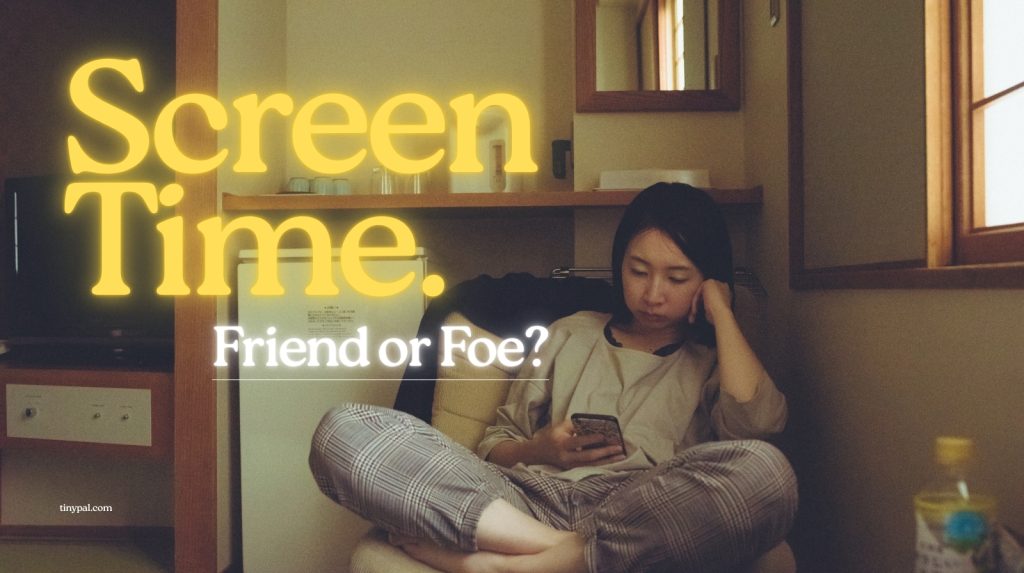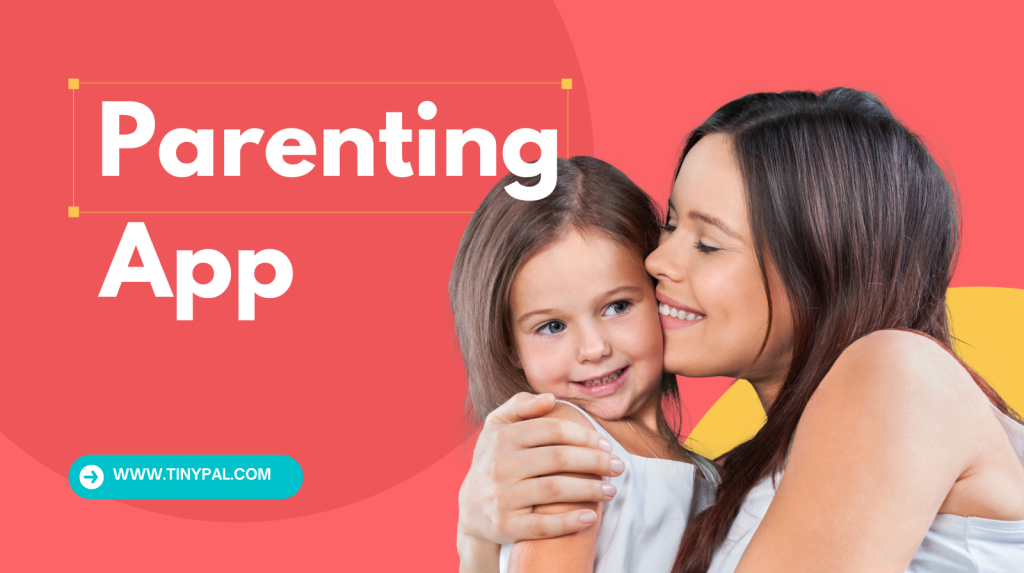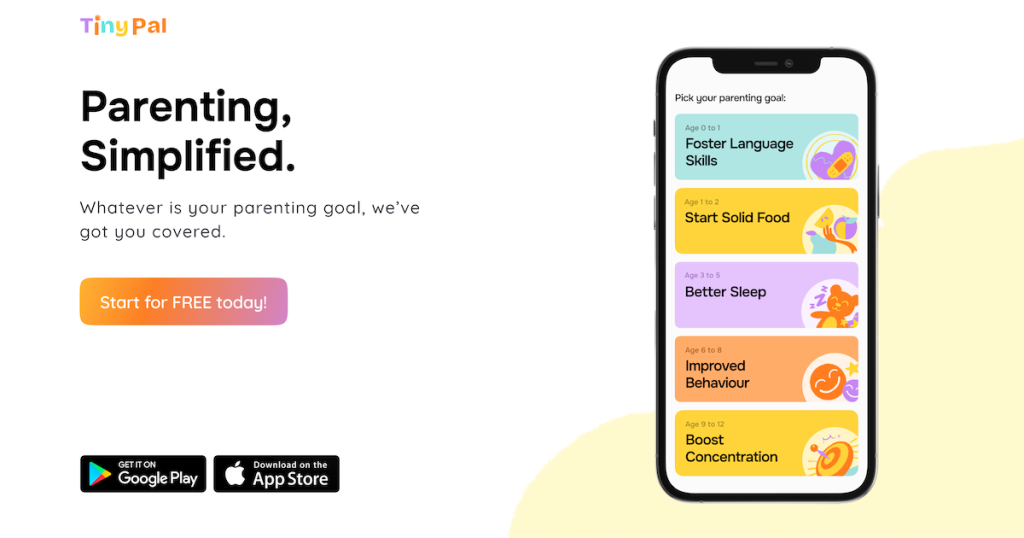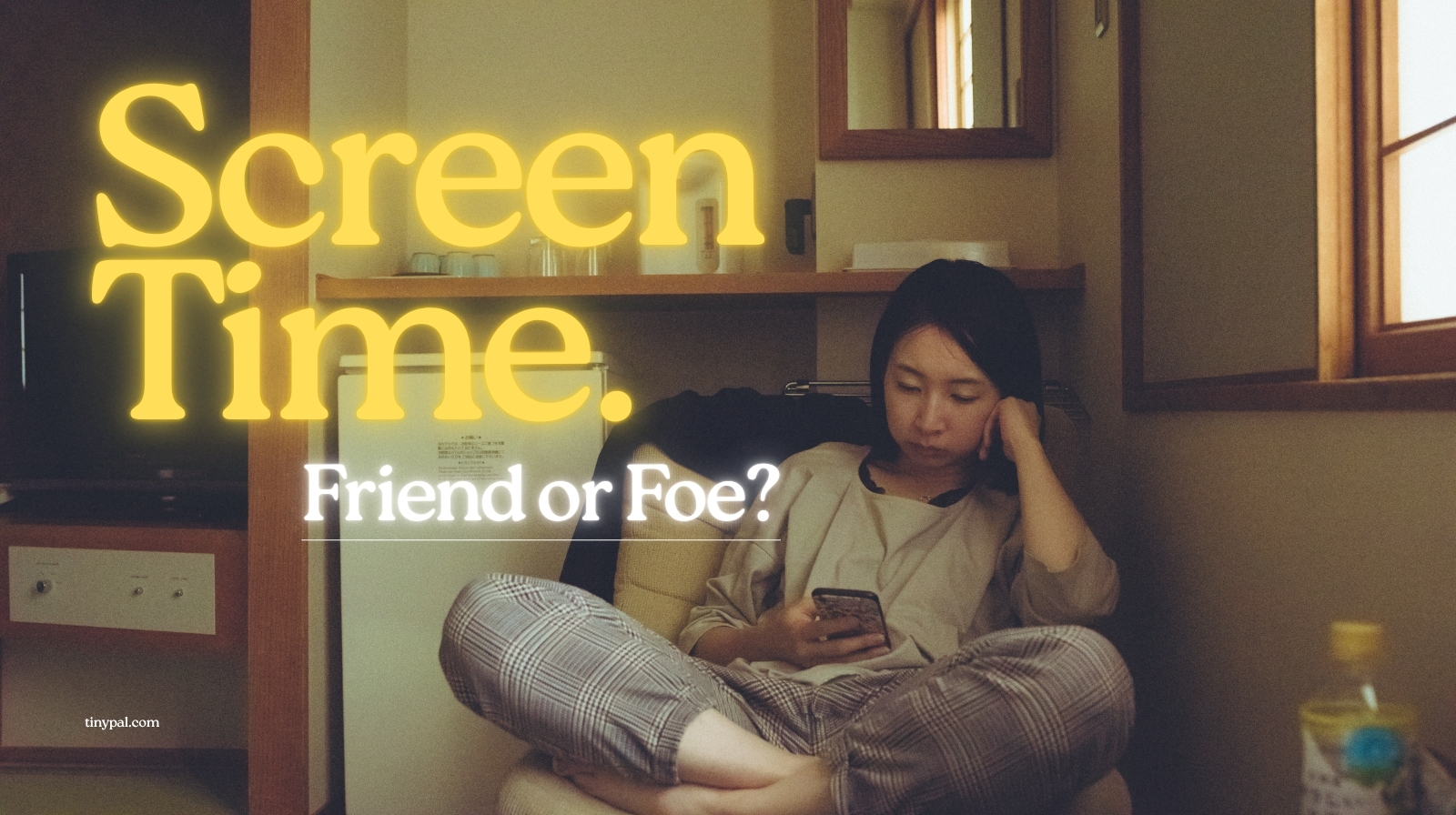Effects of Too Much Screen Time on Children: The Hidden Impact Every Parent Must Know
Understand. Balance. Grow — Raising children in the digital era with awareness and guidance.
The Digital Dilemma Every Family Faces
Every parent today faces a paradox:
Screens educate, entertain, and connect — yet they also overstimulate, isolate, and exhaust.
You hand your child a tablet to learn ABCs, and within minutes they’re lost in autoplay videos.
When you try to stop it? Meltdowns, guilt, conflict.
The truth is: screen time isn’t evil — but too much of it changes the developing brain.
Understanding its effects is the first step to restoring balance.
That’s why TinyPal, the AI-powered parenting app, exists — not to restrict, but to guide parents in nurturing emotionally intelligent, digitally balanced children.

Table of Contents
What Exactly Is “Too Much Screen Time”?
“Too much” depends on age, content, and context.
According to the World Health Organization (WHO) and American Academy of Pediatrics (AAP):
| Age Group | Recommended Daily Screen Time | Why It Matters |
|---|---|---|
| 0–2 years | Avoid screens (except video calls) | Brain growth depends on human interaction |
| 2–5 years | ≤ 1 hour/day, co-viewed | Promotes language, not isolation |
| 6–10 years | 1–1.5 hours/day | Builds balance and focus |
| 11–13 years | 2 hours/day | Prevents cognitive fatigue |
| 14–18 years | 2–3 hours/day | Encourages digital responsibility |
But when usage goes beyond these limits — especially without structure — it begins to affect a child’s body, mind, and emotions.
1. Cognitive and Learning Effects
Excessive screen exposure overstimulates the brain’s reward system.
This can cause:
- Reduced attention span
- Difficulty focusing in school
- Poor memory retention
🧠 Science Insight: Studies show that long-term screen exposure can rewire dopamine pathways, making kids crave instant gratification over deep learning.
TinyPal Solution:
Its AI Learning Insight helps parents track cognitive patterns and recommends daily “offline learning tasks” that build focus and patience.
2. Impact on Emotional Regulation
Too much screen time reduces the brain’s ability to process and express emotions.
Children may:
- Become irritable when screens are removed
- Struggle with boredom
- Show mood swings or anxiety
TinyPal’s Emotional Growth Coach teaches families daily empathy exercises to replace emotional dependency on devices.

3. Physical Health Problems
Overuse of screens contributes to:
- Eye strain and myopia
- Posture-related neck and spine pain
- Sedentary weight gain
- Poor sleep cycles
💡 Tip: The “20-20-20” rule — every 20 minutes, look 20 feet away for 20 seconds — reduces digital strain.
TinyPal gently reminds parents to integrate such habits through its Wellness Routine Prompts.
4. Sleep Disruption
Blue light exposure from screens delays melatonin production.
Children who use screens before bedtime often:
- Fall asleep later
- Wake up tired
- Experience lower academic performance
TinyPal helps families create “Digital Sunset” routines, aligning bedtime with neurodevelopmental health research.
5. Behavioral and Social Effects
Kids spending 4+ hours daily on screens are more likely to:
- Withdraw from family or peers
- Show impulsive behavior
- Struggle with empathy
TinyPal’s Social Balance Framework introduces gentle prompts to schedule family playtime and face-to-face connection.
6. Effects on Language and Speech
Especially in toddlers, too much screen time delays speech.
Passive video watching doesn’t offer back-and-forth conversation — the foundation of communication.
🎯 Parental Tip:
Read, talk, and interact instead of letting screens do the teaching.
TinyPal’s Parent Interaction Journal reminds you to build daily language moments.
7. Reduced Creativity and Imagination
Screens show the world — they don’t build it.
Overexposure limits imagination and problem-solving.
TinyPal encourages “Creative Breaks” — daily non-screen challenges that promote drawing, storytelling, or outdoor curiosity.
8. Family Disconnect
The more time spent on screens, the less time for shared meals, laughter, and conversation.
Digital overstimulation creates emotional gaps between parents and children.
TinyPal bridges this with its Family Together Mode, which promotes weekly “bonding tasks” like cooking, games, or outdoor days.
9. Academic Performance Drop
When children multitask with devices during homework, their cognitive efficiency drops by 40%.
They may complete tasks but fail to absorb concepts deeply.
TinyPal’s Focus Builder encourages “single-task zones” — short, concentrated learning blocks.

10. Long-Term Developmental Risks
If screen dependency continues unchecked:
- Brain plasticity adapts to short bursts of information
- Emotional empathy decreases
- Motivation for real-world exploration declines
Over years, this leads to a disconnect between attention, empathy, and resilience — traits every parent wants their child to have.
TinyPal’s core mission: restore these qualities using guided, AI-driven, emotionally intelligent parenting.
Balancing the Equation — The TinyPal Way
TinyPal helps parents turn digital chaos into conscious parenting with:
- AI-based Behavior Mapping (learns your child’s rhythm)
- Smart Scheduling (teaches balanced routines)
- Mindful Parenting Lessons (micro-guides for empathy)
- Progress Insights Dashboard (monitors development, not data)
TinyPal doesn’t block screens — it trains human awareness through AI.
🔗 Discover TinyPal — The Parenting App for Mindful Digital Families
Global Stats (2025 Update)
| Region | Avg. Child Screen Time | Primary Device | Observed Effect |
|---|---|---|---|
| North America | 4.8 hrs/day | Smartphone | Sleep disturbance |
| Europe | 4.2 hrs/day | Tablet | Reduced attention |
| Asia | 5.5 hrs/day | Mobile/TV | Cognitive overload |
| Africa | 3.1 hrs/day | Mobile | Moderate behavior change |
📈 Source: Global Digital Family Report 2025, WHO + UNICEF data aggregation.
Quick Fixes for Digital Overload
✅ Set daily screen limits per age group
✅ Replace screen time with creative or outdoor play
✅ Use co-viewing for learning shows
✅ Prioritize physical interaction over passive content
✅ Enforce a “no screens one hour before bed” rule
✅ Model healthy device behavior as parents
✅ Use TinyPal’s emotional coaching to build long-term habits
FAQs — Effects of Too Much Screen Time on Children
- How much screen time is too much for kids?
Anything exceeding 2 hours daily of non-educational use can harm attention, sleep, and behavior. - Can screens cause mental health issues?
Yes. Excessive screen exposure is linked to anxiety, irritability, and poor emotional regulation. - Does screen time affect children’s eyesight?
Overexposure can cause digital eye strain and myopia in early development. - Can too much screen time make my child hyperactive?
Yes, overstimulation affects dopamine cycles, leading to restlessness. - How can parents balance screen use?
Set structured routines, co-view educational content, and encourage physical activity. - What’s the effect of screens on toddler speech?
Passive viewing delays speech and comprehension; active talking builds real communication. - Can screen time impact sleep quality?
Yes. Blue light suppresses melatonin and delays deep sleep cycles. - Do educational apps count as screen time?
Yes, though high-quality interactive ones are beneficial in moderation. - How to make screen time healthy?
Mix learning, limit duration, use breaks, and focus on emotional connection. - Should teens have screen limits?
Yes, 2–3 hours max daily, balanced with outdoor and social time. - Does screen time affect emotional intelligence?
Overuse reduces empathy; conversation-based apps like TinyPal help rebuild it. - What happens if kids use screens before age 2?
It interferes with sensory and emotional development. - How can TinyPal help parents?
TinyPal guides parents to manage habits through AI insights, emotional coaching, and smart scheduling. - Are weekends exceptions for screen limits?
Slight flexibility is fine, but structure must remain consistent. - Can parents reduce screen time without arguments?
Yes — by teaching balance, using transitions, and positive reinforcement instead of control.
Conclusion
Screens are not enemies — they are mirrors of our habits.
When used consciously, they empower. When overused, they erode curiosity, focus, and connection.
With TinyPal’s AI-guided parenting approach, families learn not just to control screen time — but to transform it into mindful growth time.
Your child doesn’t need less technology.
They need better guidance — powered by you, refined by TinyPal.

